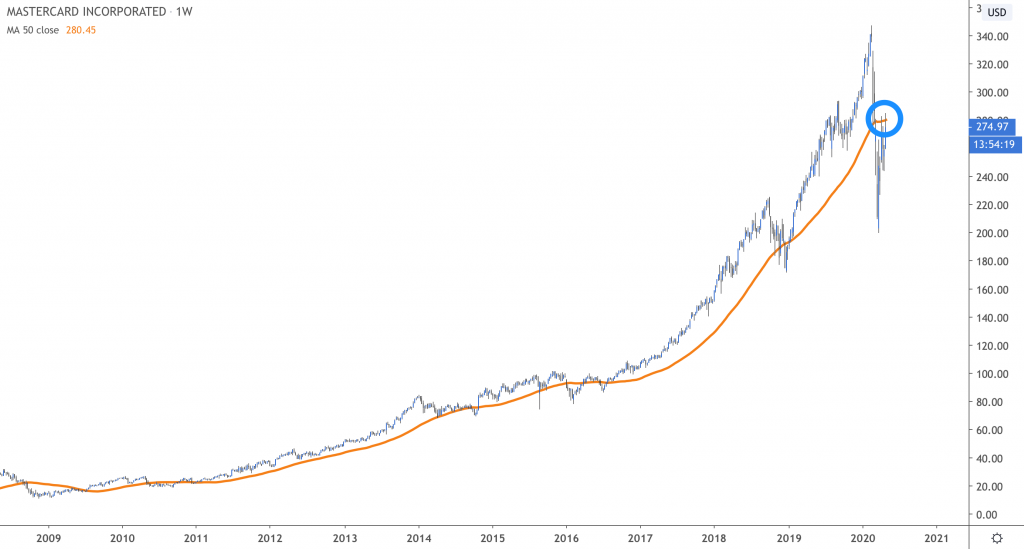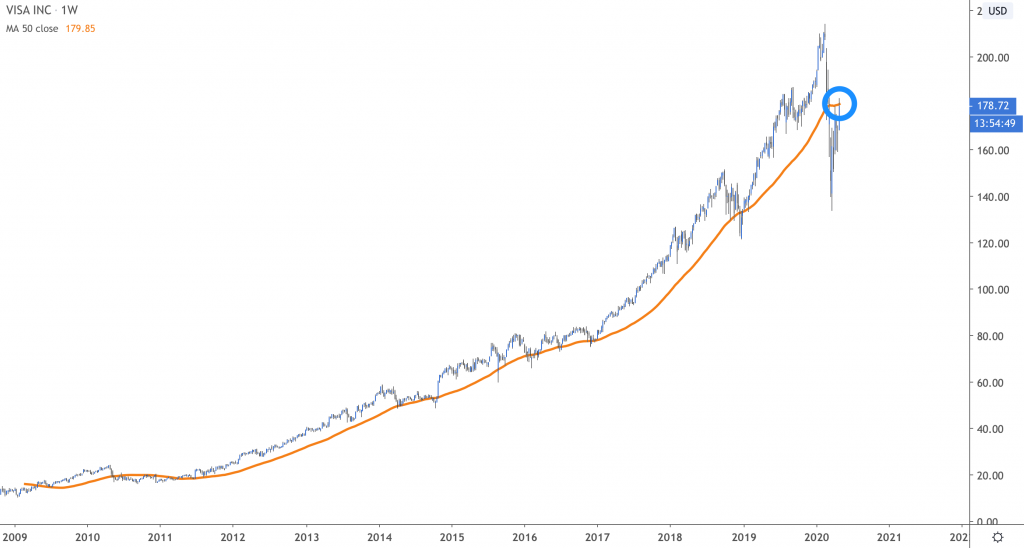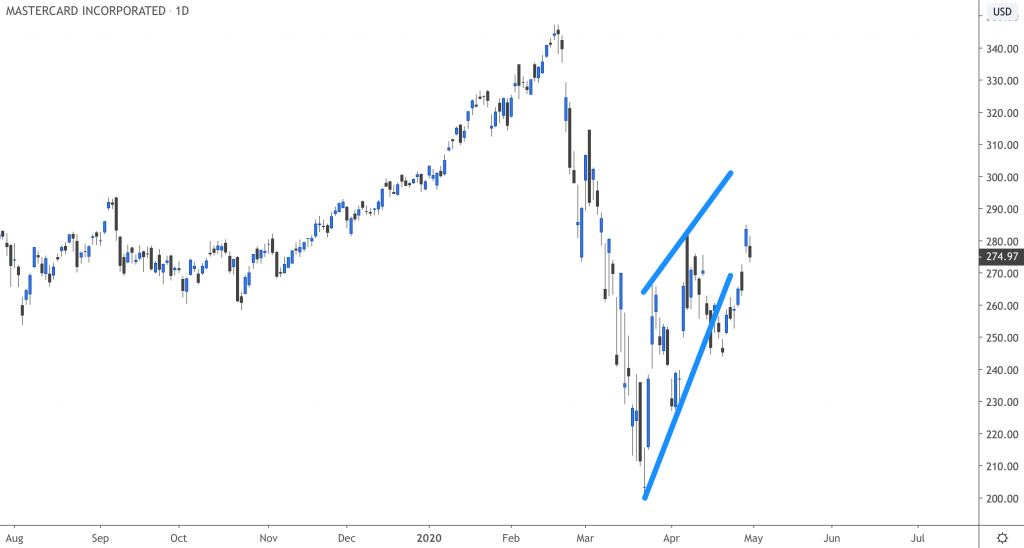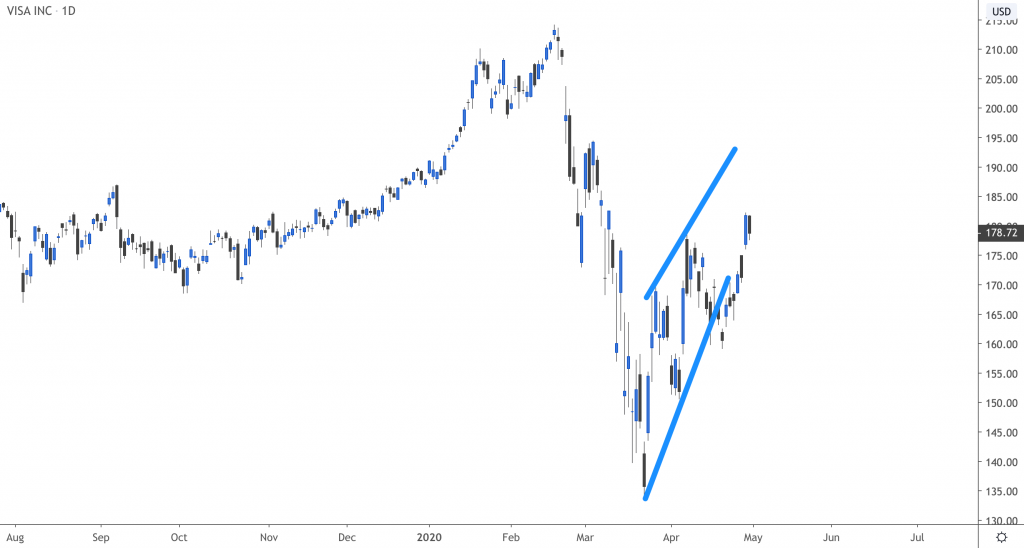Weakness in the charts of these 2 stocks may signal more pain ahead for the market.
The coronavirus pandemic has plunged the U.S. into a brutal recession.
On Thursday, the Labor Department reported that another 3.84 million Americans filed for unemployment benefits last week, bringing the six-week total to more than 30 million as the coronavirus has forced businesses to shutter in an effort to stem the spread of the deadly virus.
“Jobless claims are a warning that the worst isn’t over yet for the American economy with businesses and consumers alike being sucked down into the abyss of the pandemic recession,” said Chris Rupkey, chief financial economist at MUFG. “The risks to the outlook are that the economy is digging itself such a big deep hole that it will become harder and harder to climb back out of it.”
The 30 million jobless figure far exceeds the 22.442 million jobs added to nonfarm payrolls since the Great Recession.
In other economic data out Thursday, U.S. personal spending plummeted the most on record in March as the coronavirus forced widespread shutdowns and job losses, with household outlays falling 7.5% from the month prior.
Federal Reserve Chairman Jerome Powell encouraged the government to provide more stimulus to support the struggling economy in a press conference yesterday, highlighting that the “burdens are falling most heavily on those least able to carry them.”
Even as the economic news has become increasingly grim, the market has been rallying, with the S&P 500 gaining just under 18% in April.
But two stocks that were winners in the last recession may be sending out a warning signals to investors now.
Miller Tabak chief market strategist Matt Maley said payment stocks Mastercard (NYSE: MA) and Visa (NYSE: V), which have both risen more than 1,000% since the March 6, 2009 bottom, may be red flags for the rest of the market.
“These two stocks are very, very important to the consumer, and the consumer is 70% of our economy, and the problem is of course, they’ve started to roll over a bit,” Maley said this week “Look at the long-term charts on these names. Visa, it’s slightly above its trend line going all the way back to the crisis lows, and Mastercard is slightly below its long-term trend line.”


What to watch for now, according to Maley, is if these two stocks can bounce off their trend lines, or if they’ll break meaningfully below it.
If either one break below their trend lines, “that’s going to be a problem signal for the consumer, which of course will not be good for the economy,” Maley said. “On a short-term basis, you look at the charts and they have both broken down. You see Visa and Mastercard have broken down below their recent upward trending trend channel.”


“If we see more weakness, it’s going to be definitely a warning signal not only for the consumer but for the market overall,” Maley said.